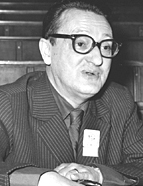

A group of collaborators and followers began the preparation of a tribute book entitled Luís de Albuquerque Historiador e Matemático [Luís de Albuquerque Historian and Mathematician] (1998). The book contains seven studies on various features of his work, four unpublished works and his complete bibliography. Within the scope of the commemorations of the 25th of April of 1993, the Serviços Culturais da Câmara Municipal da Figueira da Foz [Cultural Services of the City Hall of Figueira da Foz] promoted the exhibition "Luís de Albuquerque. O Homem e a Obra" [“Luís de Albuquerque. The Man and His Work”], and in the following year the Departamento de Matemática da Universidade de Coimbra [Department of Mathematics of the University of Coimbra] published the volume Estudos de Matemática em Homenagem ao Professor Doutor Luís de Albuquerque [Studies in Mathematics in Homage to Professor Luís de Albuquerque] (Coimbra, 1994). He was also honoured by the Navy Academy, and also in 1992 and 2017, on the occasion of the centenary of his birth.
Of all the tributes and manifestations in memoriam, there is perhaps one that is most prominent, a rare distinction in the life course of a historian: in 1991, at its 101st annual meeting, the American Historical Association, the world's largest association of professionals in the field, elected Luís de Albuquerque as its 76th honorary member, a distinction first bestowed upon Leopold von Rank. Its proposers were Ursula Lamb and Wilcomb Washburn.
Luís de Albuquerque's scientific and literary work is broader and more diversified than it might seem: it is as if everything had grasped his interest, as if he had studied everything and been attracted by everything, and his bibliography includes more than a thousand titles (Domingues, 1998), reflecting an activity that manifested itself on four major levels.
The mathematician's work is well known thanks to the studies of J. J. Dionísio, and Graciliano de Oliveira, José Vitória, Natália Bebiano and Nazaré Mendes Lopes (all professors at the Department of Mathematics of the Universidade de Coimbra) attest to the path and innovation of Luís de Albuquerque in the discipline, namely by the role he played in the advent of the Portuguese School of Linear Algebra.
